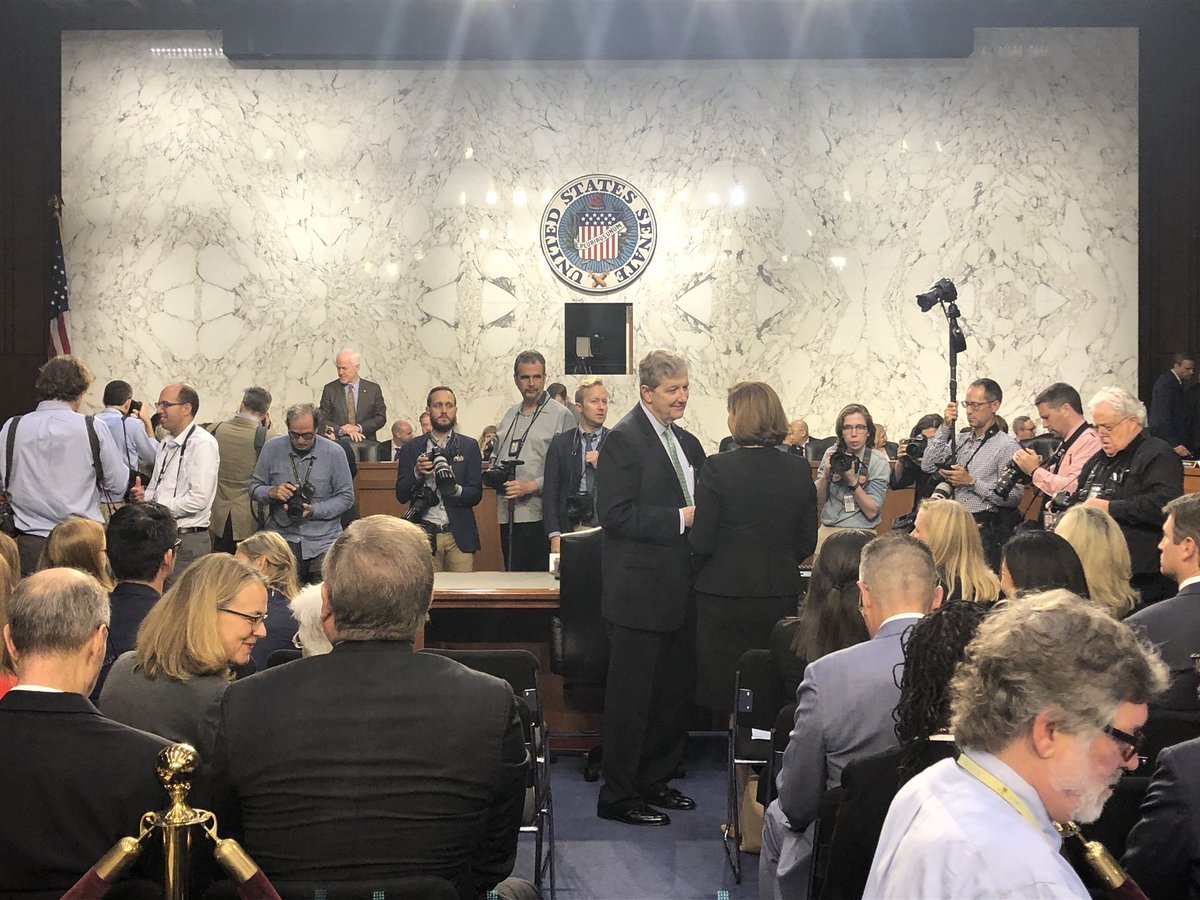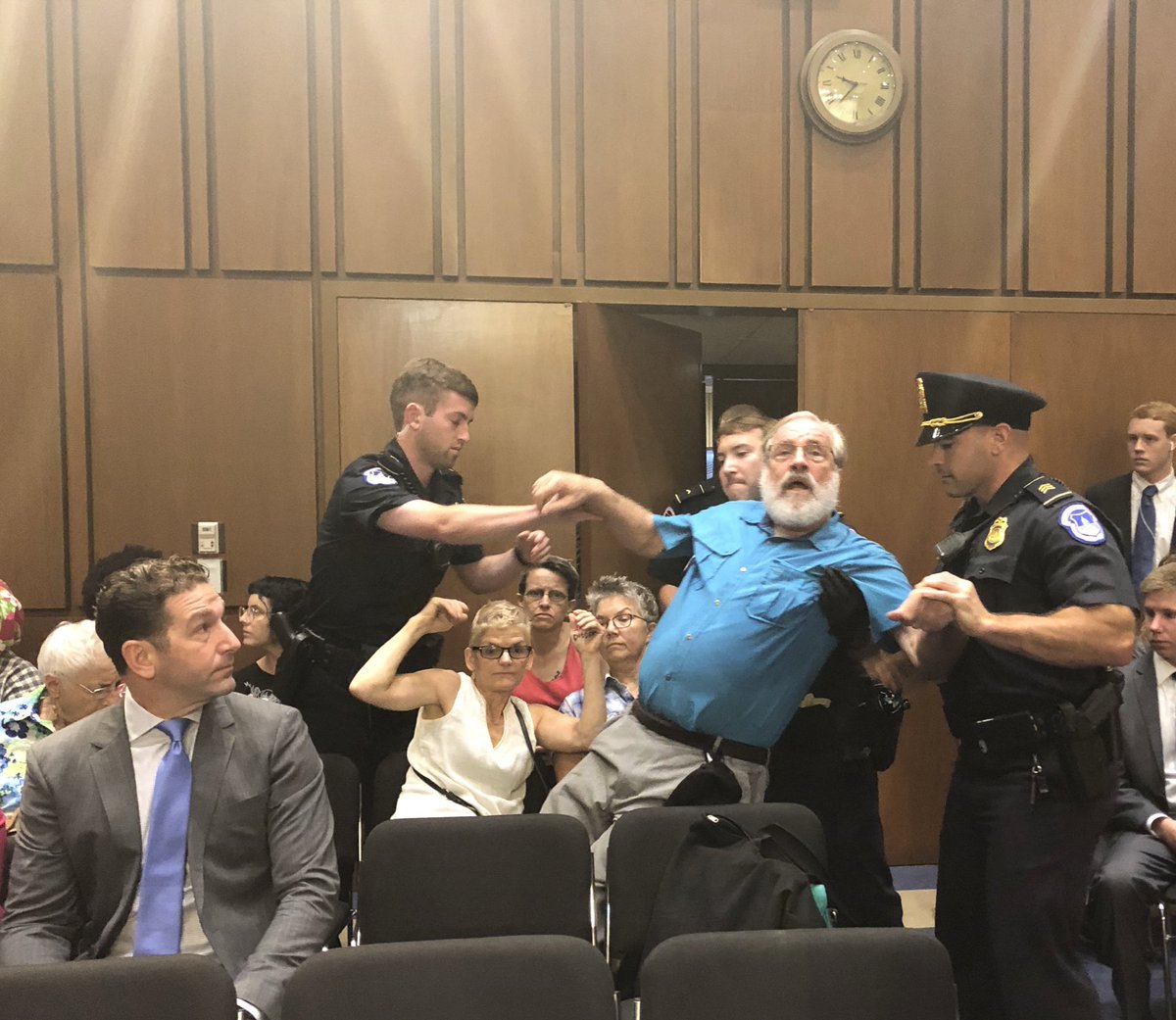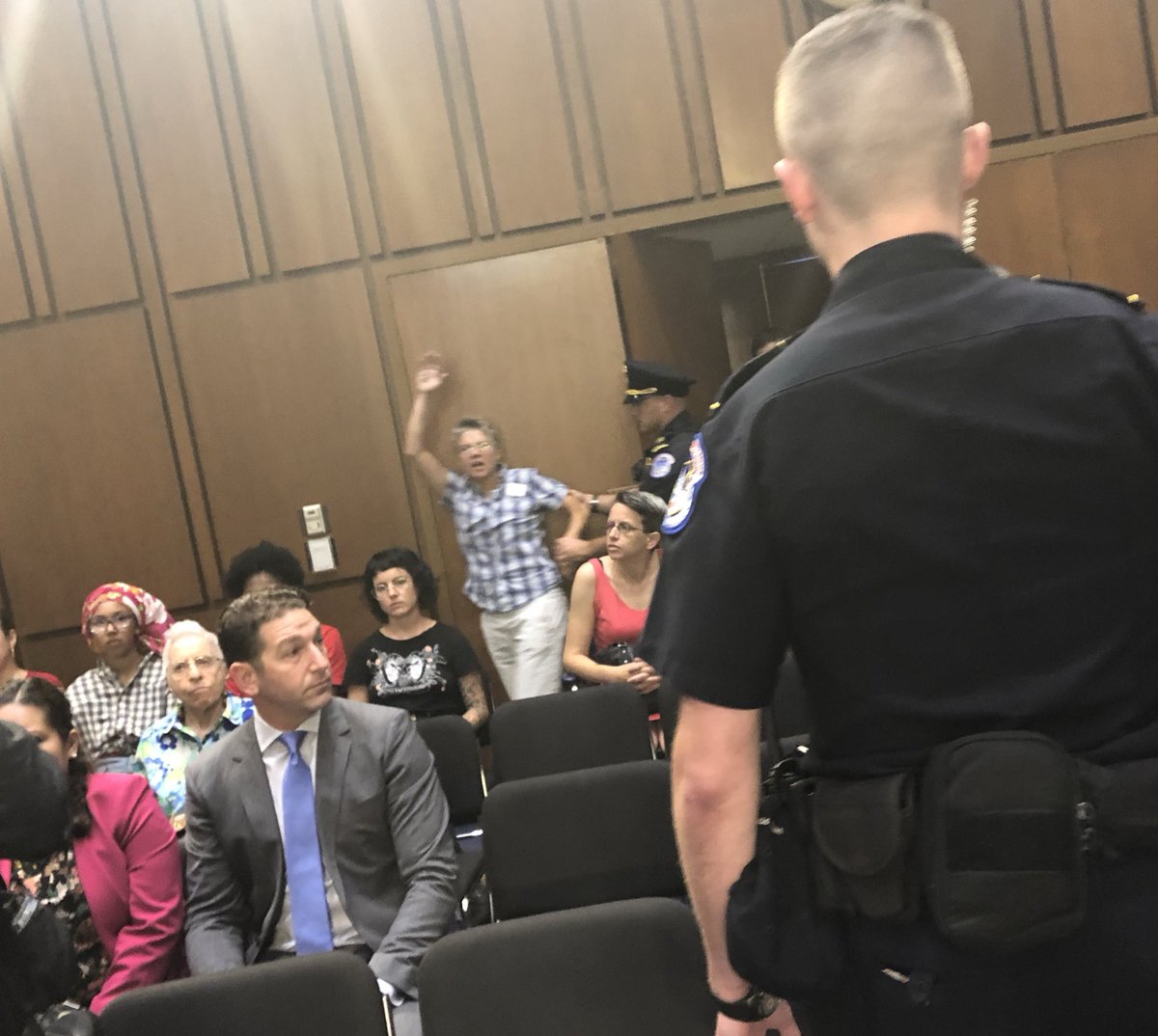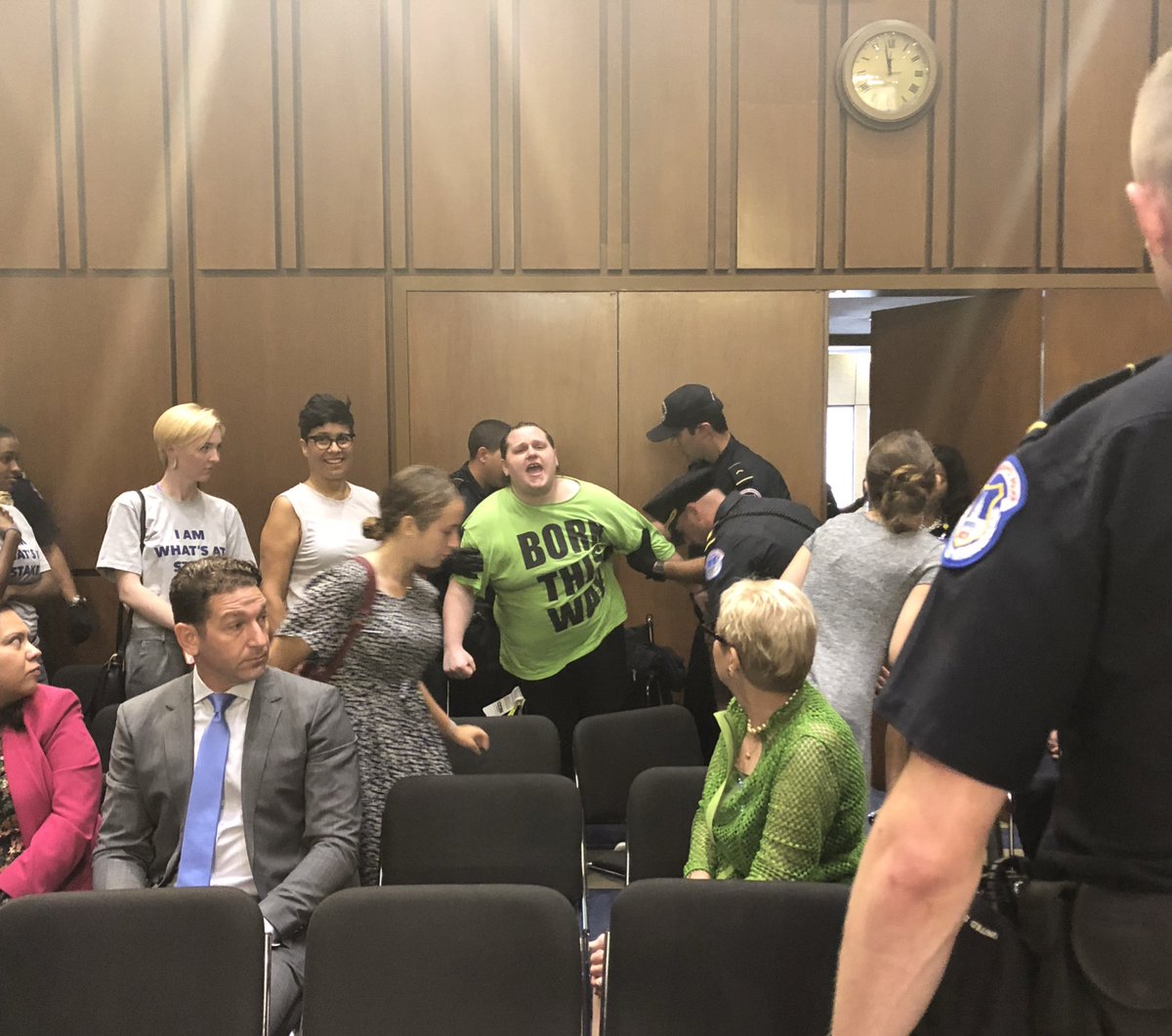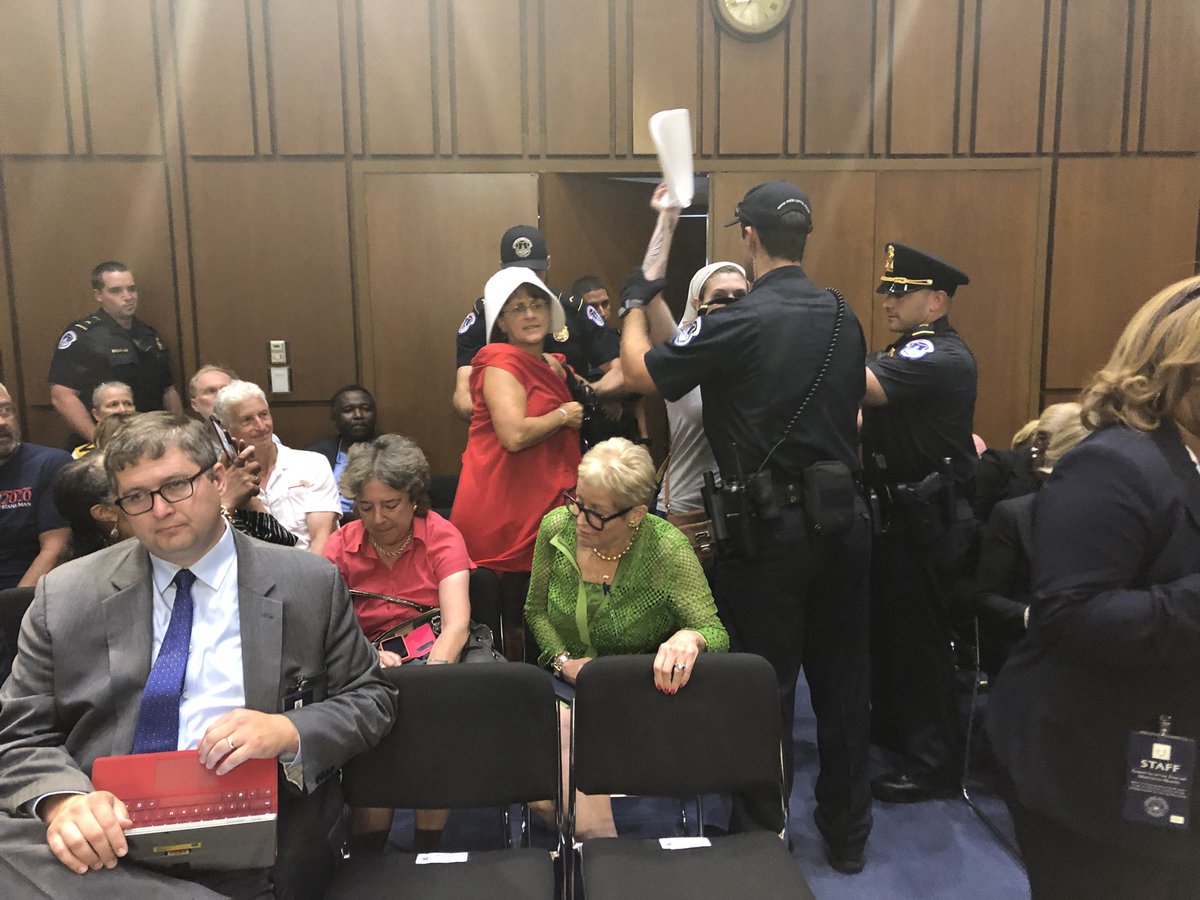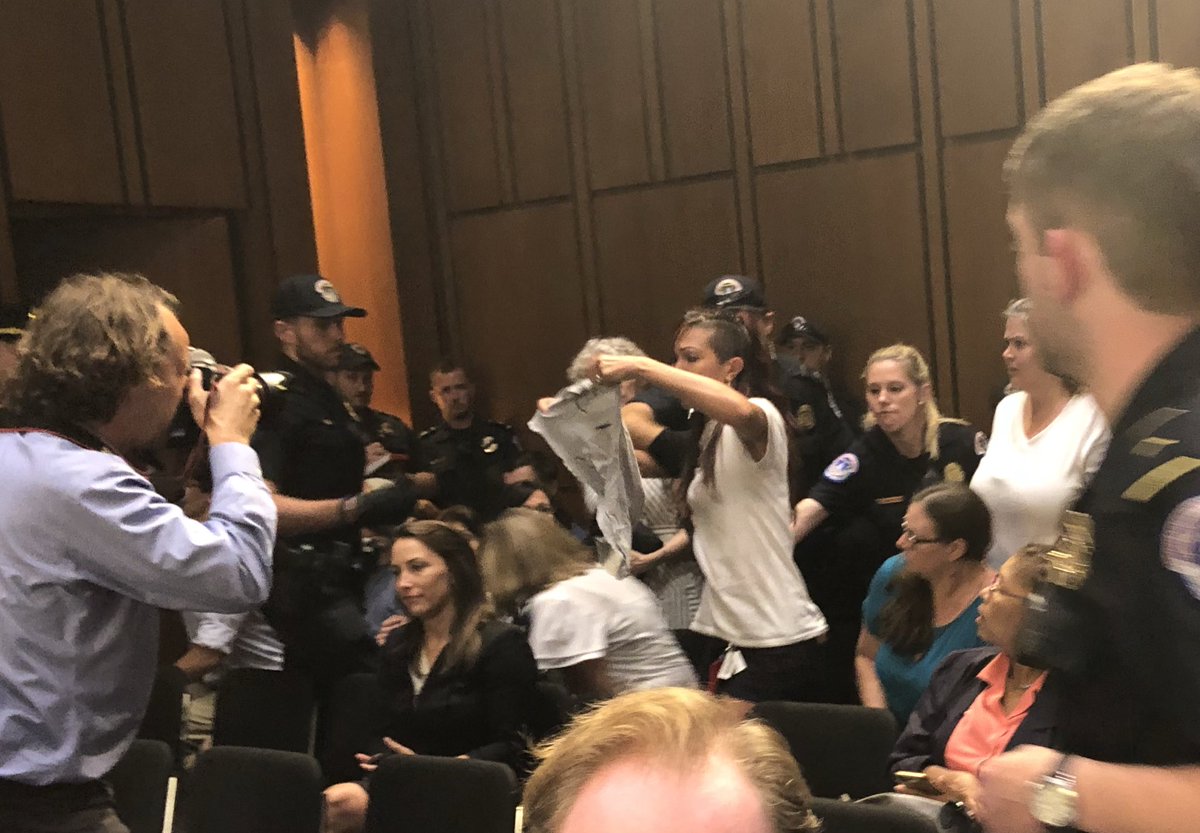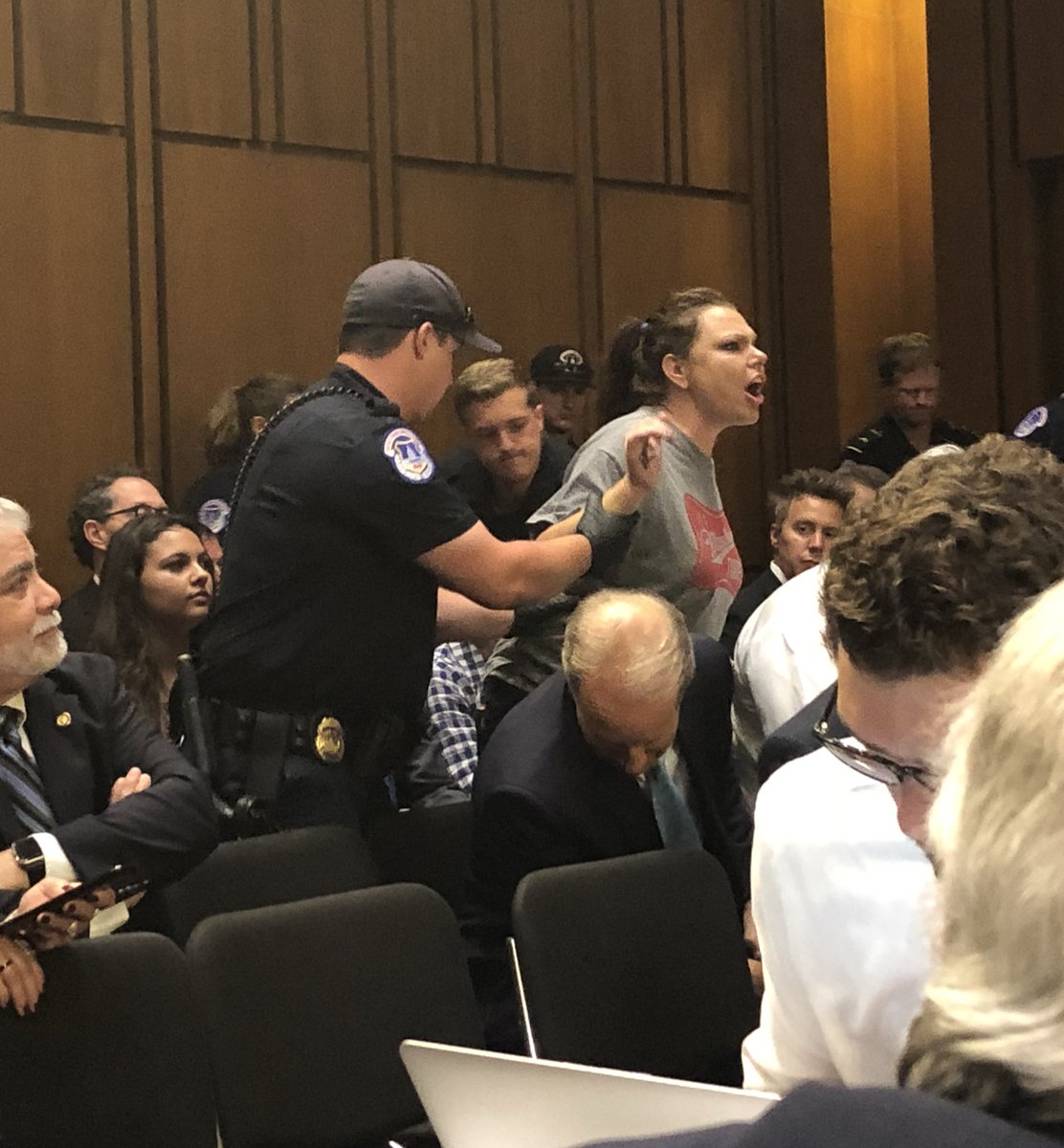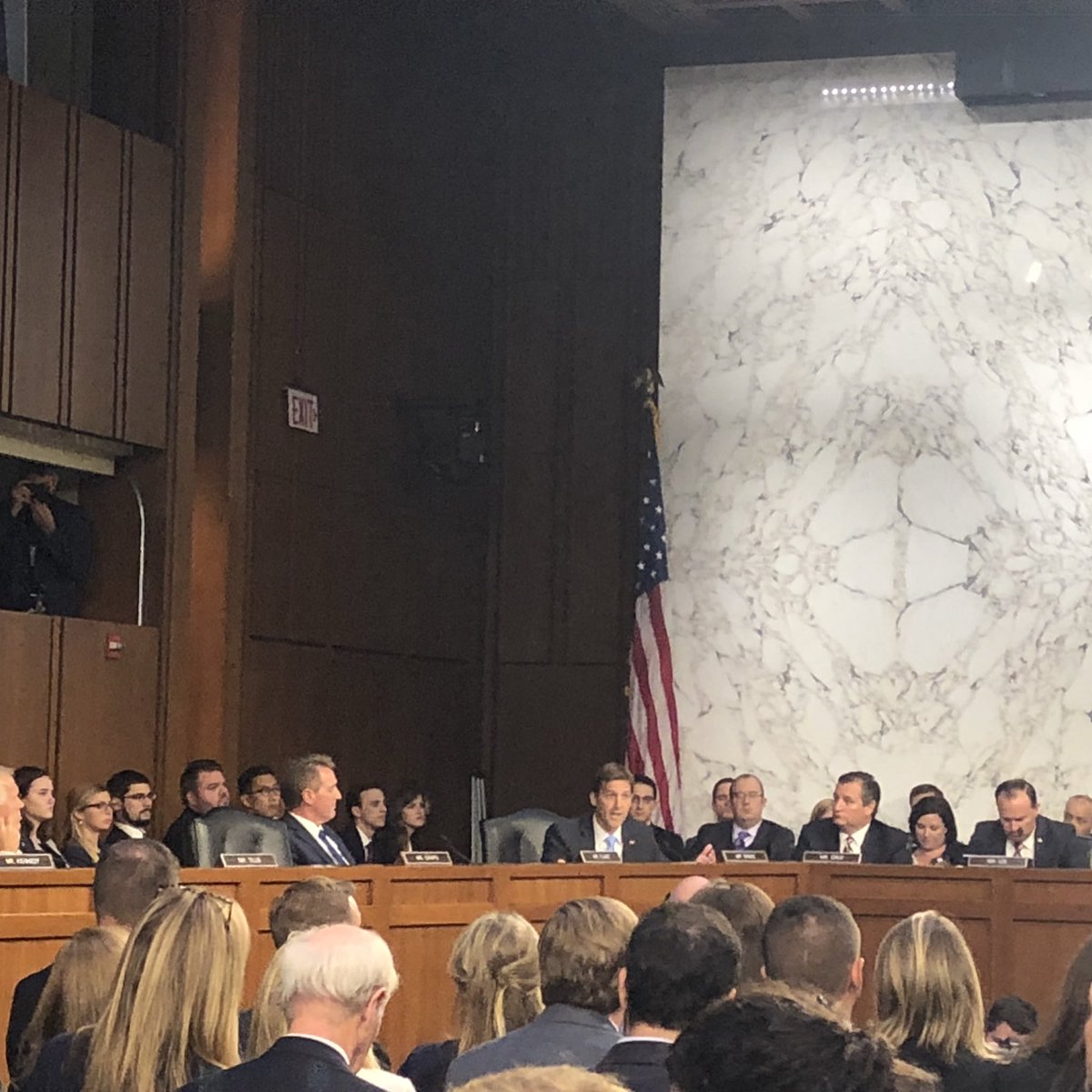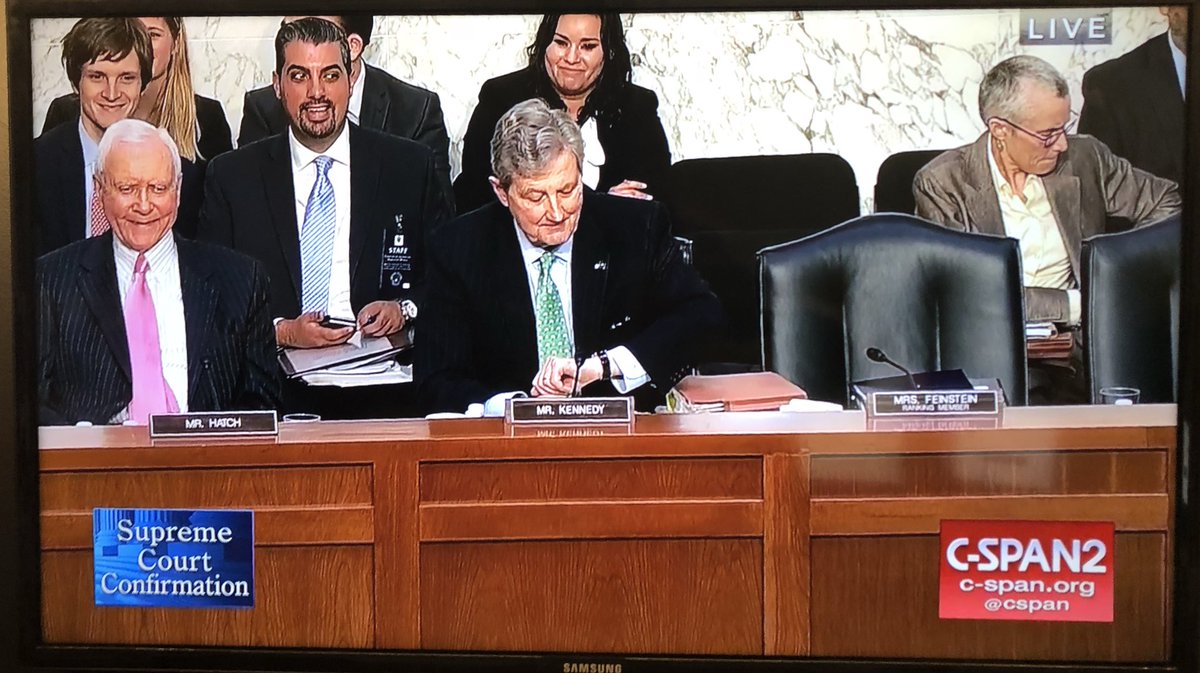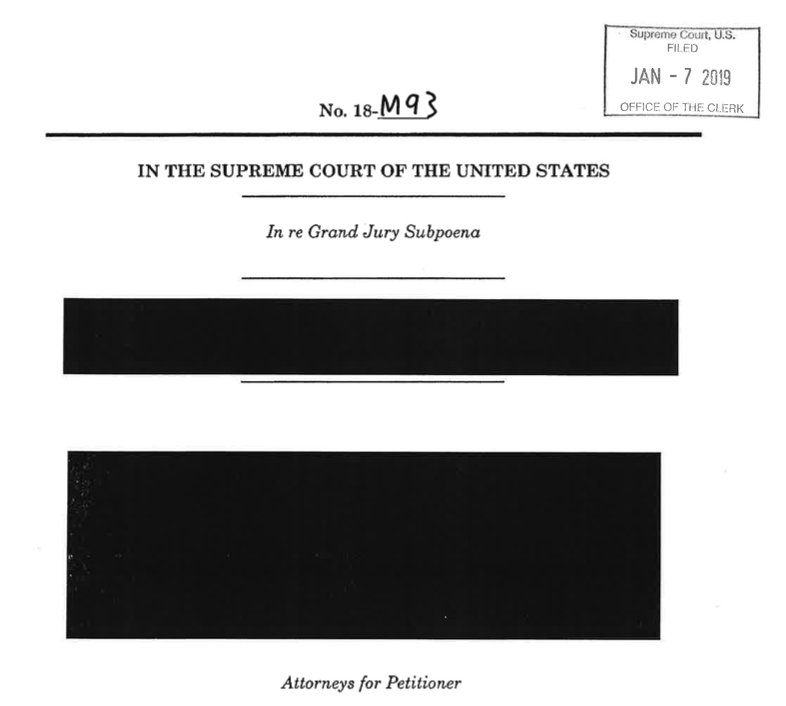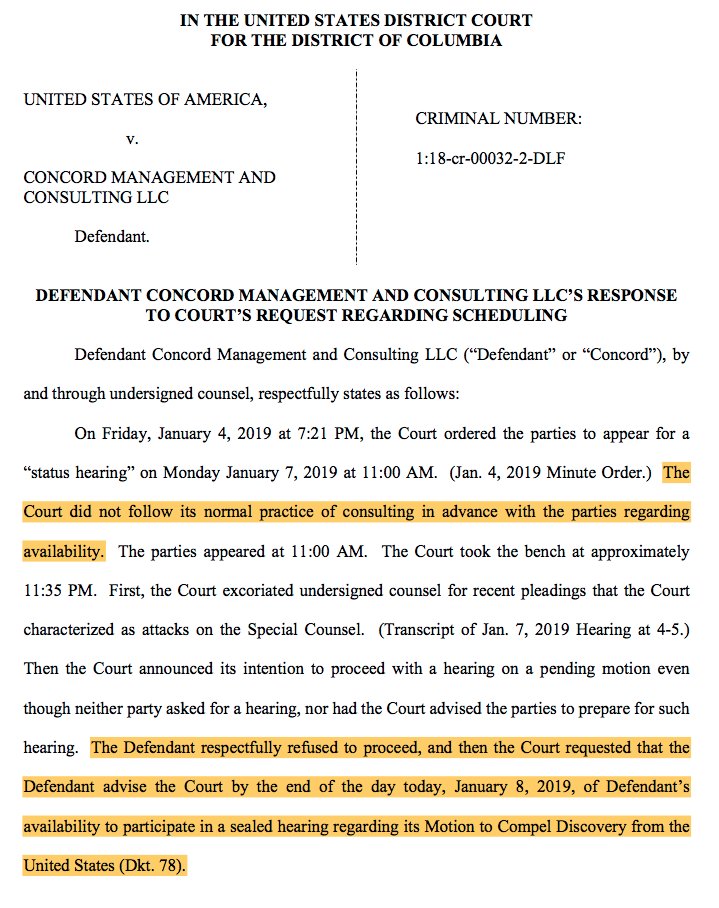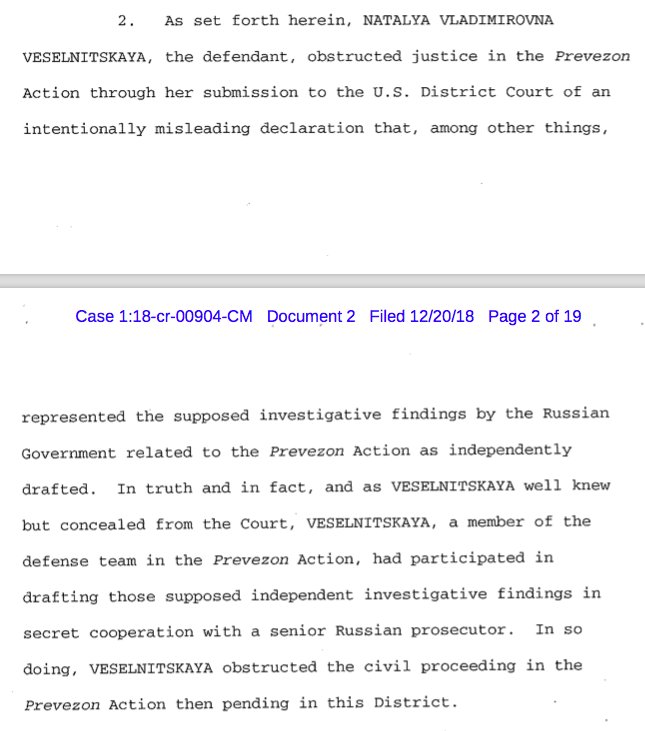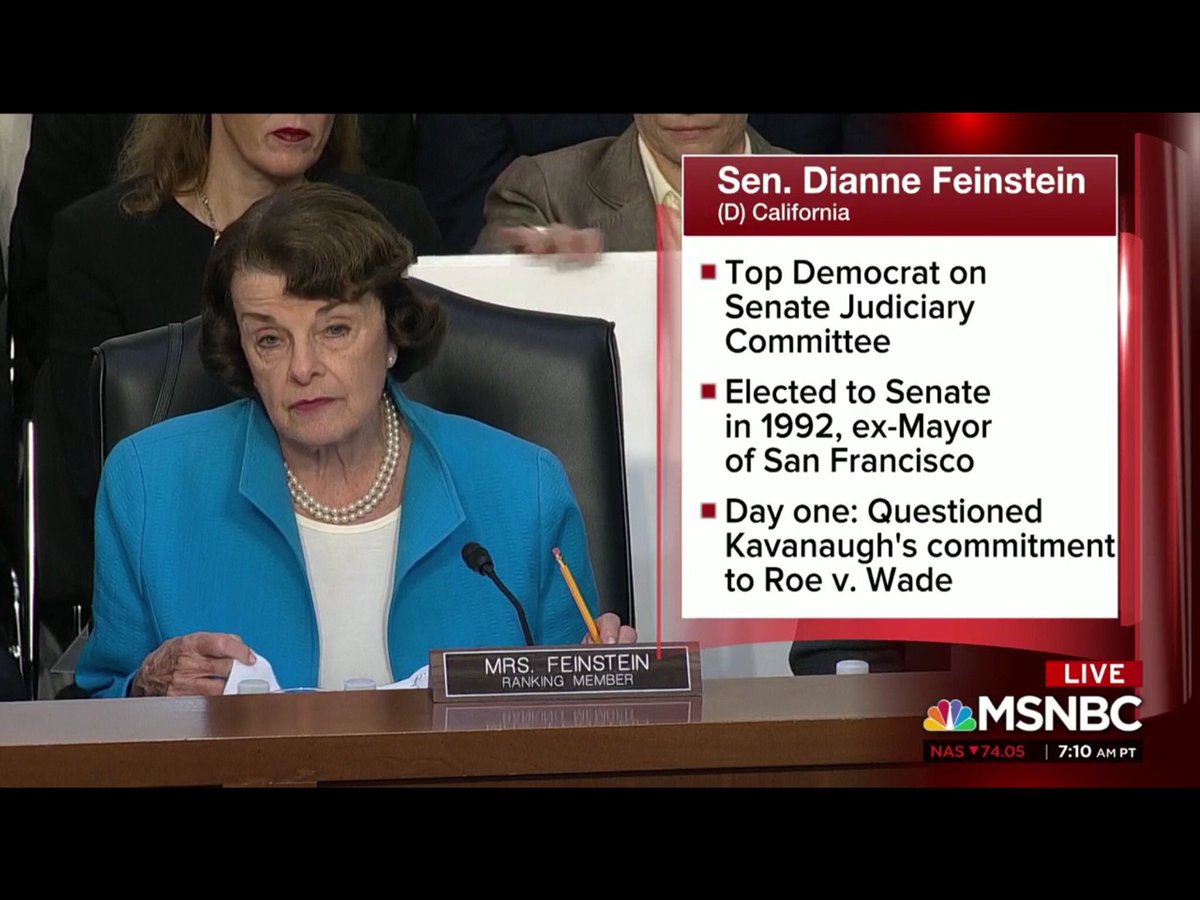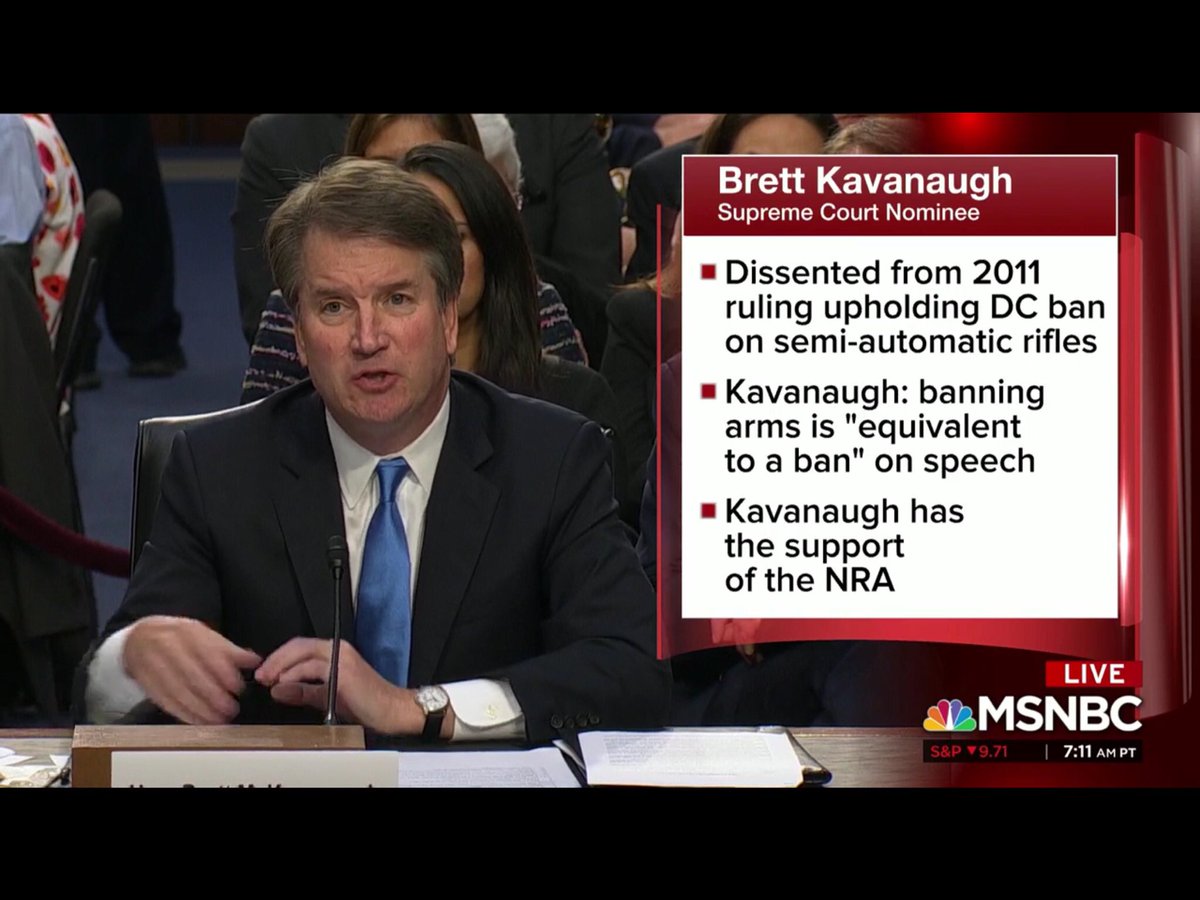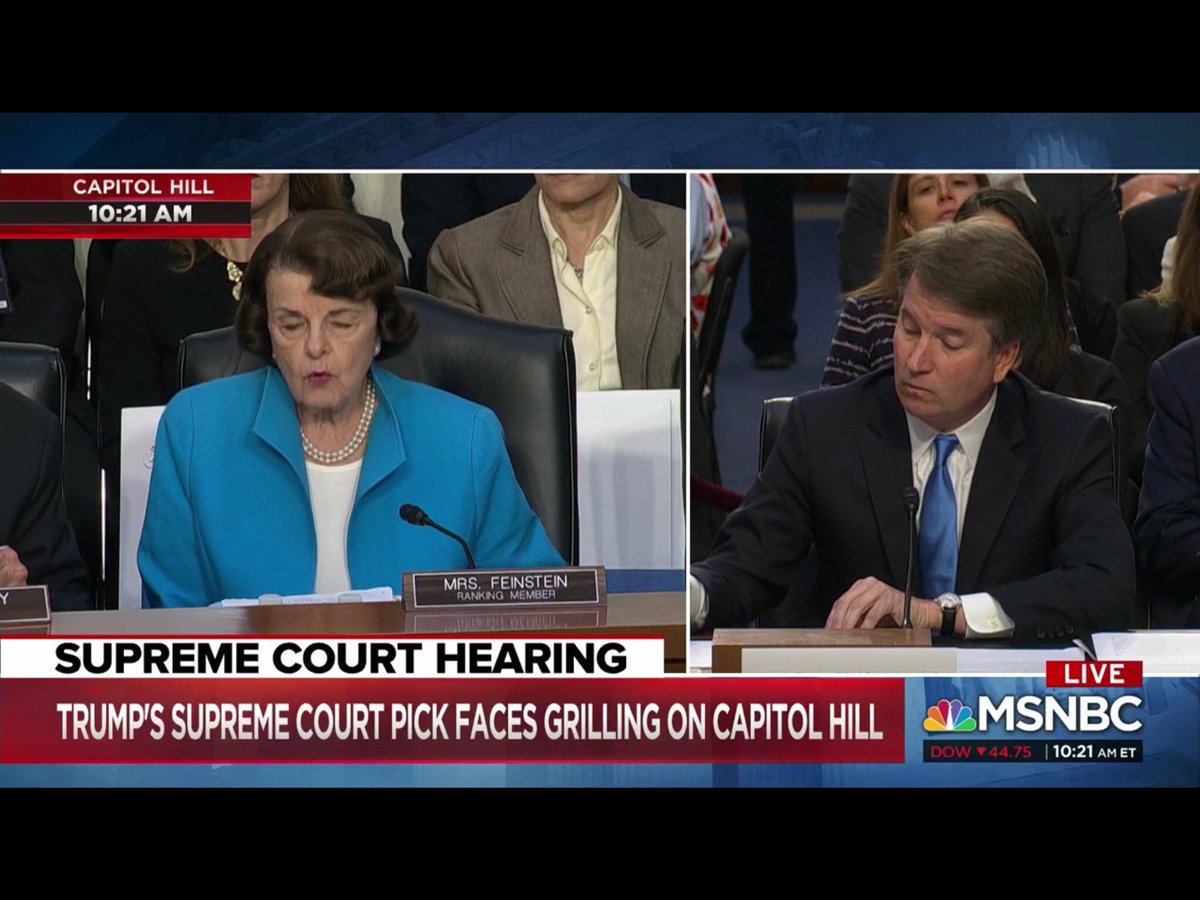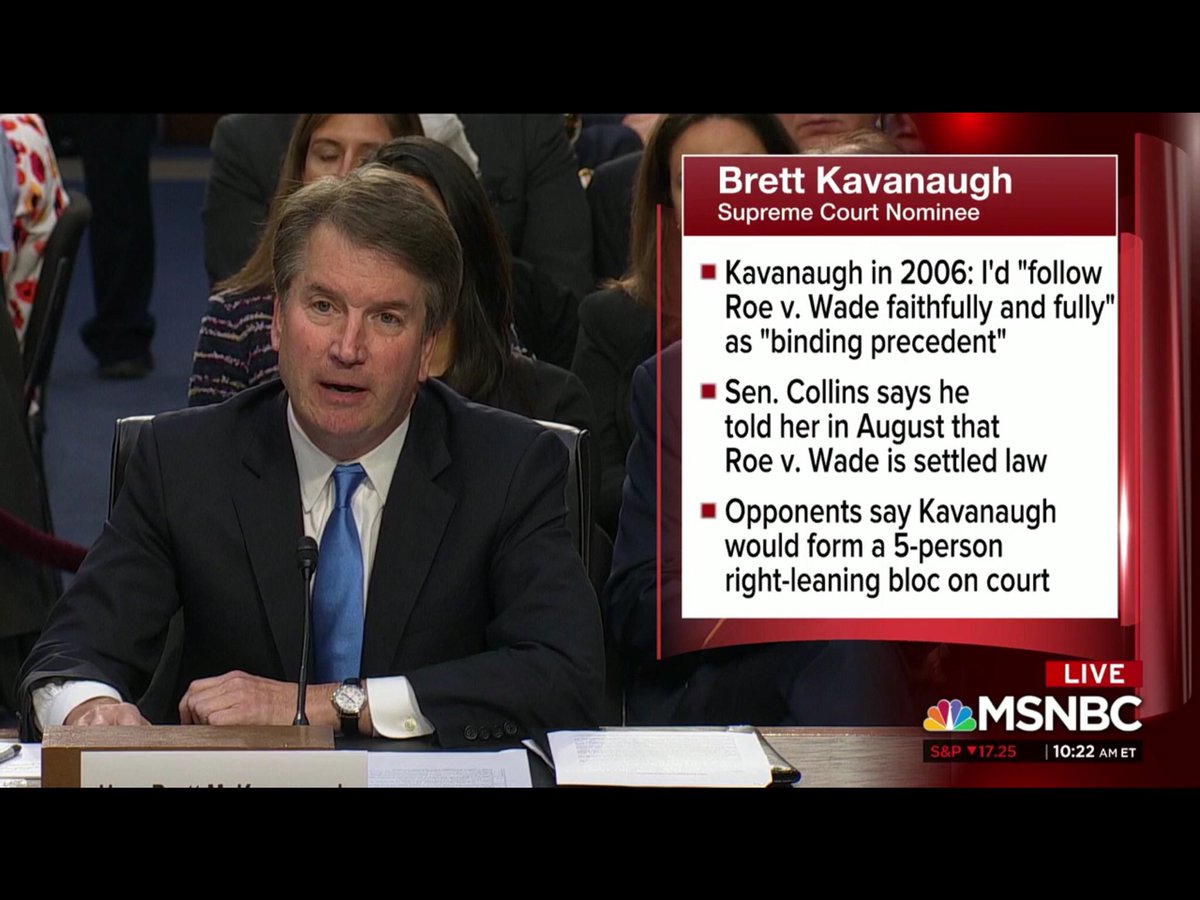Kavanaugh: "No one is above the law in our constitutional system."
- "Litigants have to know we have an open mind."
- Says he doesn't want to appear to be agreeing with certain decisions in exchange for votes from senators, citing Roberts' confirmation.
Kavanaugh says it deserves "respect under principles of stare decisis."
Kavanaugh: "I understand the importance of the issue. ... I don't live in a bubble. I live in the real world."
Kavanaugh: "As a sitting judge and a nominee ... I can't give you an answer to a hypothetical."
"What it takes is just not accepting the same-old answer," he says. He says, "I try to figure out why, and then do something about it."
Kavanaugh is winding, says there were meetings and, "of course" things would come up about what senators were planning.
"No," Kavanaugh says.
Kavanuagh hedges.
Leahy asks, specifically, if he was asked to attend a meeting about Biden and Feinstein.
Kavanaugh says it was possible.
Kavanaugh: Could you give me something specific?
L: Documents marked confidential?
K: "It wouldn't have raised anything in particular in my mind."
Grassley is unhappy.
Leahy also is unhappy.
Grassley said this is a precedent-making move, so he read a whole thing about this, and is letting Kavanaugh provide more video if he wishes.
The Senate is a helluva thing.
Kavanaugh says he had not previously been read in to the program.
Kavanaugh says it was "all hands on deck" after Sept. 11. "There was so much going on in the wake of Sept. 11. ... We had eight lawyers in there ... and there were so many issues to consider."
Kavanaugh says there could be a secondary crime of the bribe, in addition to whatever was being pardoned, and he wouldn't want to conflate them.
Also: "The question of self-pardon is something I have never analyzed."
K: No.
G: Was he involved in the creation of the warrantless surveillance program?
K: No.
"I base my decisions on the law ... but I do so with an awareness of the facts." He says he understands the passion people feel about issues.
He did not directly address the father.
K: I always do.
G: When it comes to overturning longstanding precedent, how do you do it?
K: Restating his "precedent-on-precedent" discussion, he adds, "There are factors you look at when considering any precedent."
G: "When somebody says, post-9/11, we've been at war on terrorism?"
K: Says yes, because the AUMF is still in effect.
Durbin asks if K was involved in the Dec. 2005 torture ban bill signing.
"I can't recall what I said," Kavanaugh said, adding that there was much discussion within the White House.
Kavanaugh says SCOTUS parental consent cases are the most analogous cases.
Durbin says that Kavanaugh is ignoring the judicial bypass provision, which she had done.
Durbin says that Kavanaugh is adding to the requirements of Texas law.
Instead, it's Agri Processor Co. v. NLRB. caselaw.findlaw.com/us-dc-circuit/…
He says he thinks he was right.
Now up, Cornyn.
A second young person follows.
K says Trump made his nomination.
What about Leonard Leo's role? (Leo is on leave from his role at Fed Soc to help the White House w the nomination.)
K: "I don't know. I don't know the specifics."
Kavanaugh: "There are a lot of ads against me as well."
A woman who started with clapping, goes on to: "We should have an impeachment hearing, not a confirmation hearing."
A second: "We will not go back."
Kavanaugh says no.
Klobuchar suggests a distinction b/w WH and DOJ SG records.
"There's one executive branch," Kavanaugh says.
[Enter your unitary executive pieces.]
He adds:
- Garland joined 27 of 28 Kavanaugh panel opinions.
- Kavanaugh joined 28 of 30 Garland panel opinions.
"Would you vote to overturn Morrison?"
"I'm not going to say more —"
Kavanaugh says part of his view of judicial independence means he will not take such a position.
So. OK.
Appropriations power, Senate confirmation power, the "ultimate remedies" — impeachment and expulsion — and "there are statutes that regulate" presidential and executive actions. "There are norms."
Kavanaugh: “I don’t think we want judges commenting on the latest political controversy.”
Kavanaugh: "The Supreme Court has said —"
B: "I know what the Supreme Court has said. I want to know what you think."
He's tried this a few times, and Kavanaugh keeps going back.
Kavanaugh: The Supreme Court says it is.
Booker: [Sigh.]
Booker counters that the process is "rigged" b/c there's no reason an email about racial profiling should be comte confid.
Lee says he agrees; doesn't know why it was marked comte confid.
Kavanaugh says that others oppose it, so he’s wanting to back off until he’s there, “if I’m lucky enough to be there.”
He then begins to add a caveat: “As to the decisions, if I were starting — I think I’ll stop there.”
Sounded like he’d be OK w that!
She asks if he's discussed Mueller with anyone? Then, she asks specifically about the Kasowitz firm.
Kavanaugh: "I'm not remembering."
Kavanaugh: "I've talked to fellow judges."
H: "Anyone else?"
K: "The fact that it's ongoing, it's in the news, yes."
Kavanaugh says he doesn't know everyone who works there so he couldn't answer.
He talks about the court and Pierce and Meyer.
She says she's asking what he thinks.
He continues talking about the cases.
Eventually: "I think Justice White's concurrence is a persuasive opinion. ... I have no quarrel with it."
Harris then asks if there are any laws that give the gov't power to make decisions about a male body?
He says he can't think of any.
Cc: @rickhasen, author of "Election Law Blog."
electionlawblog.org
So, you can see where this is at.
He then said that Democrats should be asking Paul Watford questions.
The committee will be back for a 20-minute round at 9:30a.

